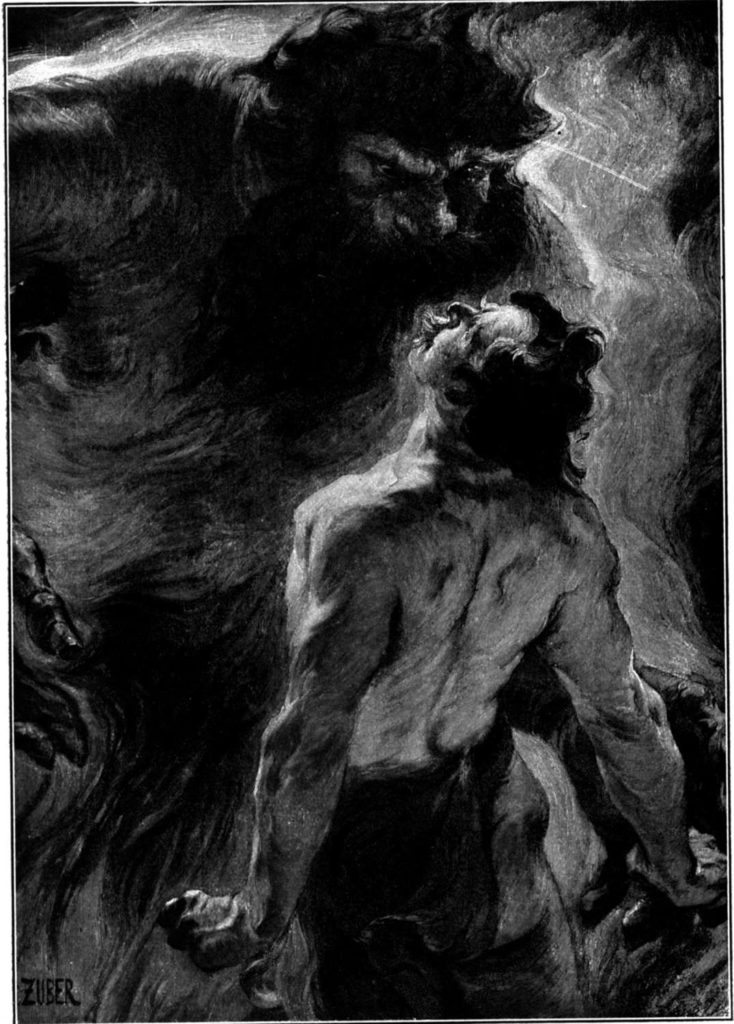
What or who is the source of evil on the earth? Is it God (YHVH Elohim), the devil or something else? This is a legitimate and honest question since so much evil exists all around us. If YHVH Elohim is the Creator of everything, then does this mean that he also created evil? If so, then how can this be, since the Bible reveals that YHVH is all good, loving, holy, righteous and sinless and perfect? If not, then who or what is the source of evil? It is important to understand the source and origin of evil, for the answer reflects either positively or negatively on the innate character of Elohim and the validity of the Bible, which promotes itself as the inspired Word of Elohim.
The answers to the question of who created evil seem like an unanswerable conundrums to many people. In attempt to resolve this issue, too many people have thrown up their hands in frustration only to become agnostics or even atheists. In reality, the answer is quite simple, and no one’s faith needs to be shaken much less obliterated as we will discover below. Frankly, to answer this seeming perplexing question, it is necessary to stop thinking like finite humans, start thinking outside the paradigmatic box of our physical earthly existence and understand the concept of evil from a biblical, heavenly and logical perspective. It is then that the answer as to the source and origin of evil neatly reveals itself as we are about to discover below.
The belief that YHVH Elohim created evil is often based on a single passage in the Bible. In Isaiah 45:7 we read,
“I [YHVH speaking] form the light, and create darkness: I make peace, and create evil: I, YHVH, do all these things.” (KJV, emphasis added)
Based on this verse, some people believe that all the evil that occurs in the world is YHVH’s fault. The stickler, however, is this: If he is the creator of evil, how can everything about him and all that he does also be good? Because of the belief that YHVH created everything including evil, some people have refused to serve and obey YHVH and questioned or even rejected his Truth as found in the Bible. After all, they reason, how can we believe much less serve a God who claims to be good, yet who is also the creator and purveyor of evil? These are valid considerations that need addressing.
In addressing this issue, let’s first ask a simple question. What does the Bible mean when YHVH says, “I create evil,”? For a better understanding of this seeming enigmatic phrase in Isaiah, let us look at how some other English Bibles translate this same verse. As we are about to discover, there is not a unanimous consensus among Bible translators as to the exact meaning of the biblical Hebrew word for evil. We will soon see that the biblical definition of evil is perhaps broader than at first thought. This alone can change one’s perspective dramatically regarding one’s understanding of the concept of evil. Perhaps our perspective is limited resulting in our coming to wrong conclusions.
I form the light and create darkness, I make peace and create calamity [Heb. ra]; I, the LORD, do all these things.’ (NKJV, emphasis added)
I form the light and create the darkness, I bring prosperity and create disaster [Heb. ra]; I the LORD, do all these things. (NIV, emphasis added)
I form light and create darkness, I make well-being and create calamity [Heb. ra], I am the LORD, who does all these things. (ESV, emphasis added)
I form light, I create darkness; I make well-being, I create woe [Heb. ra]; I, ADONAI, do all these things. (CJB, emphasis added)
Based on how other Bibles translate the Hebrew word for evil, this begs an important question. What is the biblical Hebrew word for evil and what is its definition in light of the fact that different Bibles translate the Hebrew word for evil so differently? The Hebrew word in question is ra or ra’ah It is the generic Hebrew word meaning “evil”, but, as we see below, it can mean much more than “evil” (as quoted from the Online Bible Deluxe Software Program):
- 1a) bad, disagreeable, malignant
- 1b) bad, unpleasant, evil (giving pain, unhappiness, misery)
- 1c) evil, displeasing
- 1d) bad (of its kind – land, water, etc)
- 1e) bad (of value)
- 1f) worse than, worst (comparison)
- 1g) sad, unhappy
- 1h) evil (hurtful)
- 1i) bad, unkind (vicious in disposition)
- 1j) bad, evil, wicked (ethically)
- 1j1) in general, of persons, of thoughts
- 1j2) deeds, actions n m
- 2) evil, distress, misery, injury, calamity
- 2a) evil, distress, adversity
- 2b) evil, injury, wrong
- 2c) evil (ethical) n f
- 3) evil, misery, distress, injury
- 3a) evil, misery, distress
- 3b) evil, injury, wrong
- 3c) evil (ethical)
As we can see, “evil” is only one of the many and varied definitions of the Hebrew word ra, which can also mean “distress, adversity, unhappiness and sadness” among other things.
Now in light of the broader meaning of the word ra, let us ask a couple of questions and briefly explore the concept of evil. For example, can “bad” things happen to people that end up being good for the person in the end? Similarly, are there things that on the surface appear to be bad, injurious and hurtful, but in reality are for our own safety and protection? Absolutely yes to both questions. Perhaps you have never thought of bad or “evil” in this way, but it, nevertheless, is within the definition of biblical word for evil. Keep these points in mind as we proceed in our discussion and expand our understanding of the concept of bad and evil .
Let’s continue to broaden our understanding of the Hebrew word ra. According to The Theological Wordbook of the Old Testament, the primary definition of Hebrew word ra is “the lack of quality or inferior quality of something or someone and is thus unable to meet standards of value or function beneficially.” The word can connote “moral deficiencies” and is contrasted to the Hebrew word tov which is the generic word meaning “good”. The TWOT goes on to note that Elohim [as the Just Judge of the universe] acts with painful punishment against evil or ra against people who refuse to repent of their wicked, evil or sinful actions. If he failed to take such action against evil, then evil would take over the earth and universe. Do you think this is impossible or that this has never happened before? If so, go read what Scripture says about Satan and the angelic rebellion that occurred before the creation of humans (see Isa 14:12–17; Ezek 28). It happened once and it can happen again.
Let’s now explore another ramification concerning the concept of evil and its source and origin. Is YHVH the creator of evil in a direct sense, or is he merely the creator of the spiritual machinery that set up the laws of cause-and-effect such that evil consequences are the result of wrong choices that people make? That is, when people break YHVH’s laws, evil (in the sense of punishment) befalls them as a result of their actions and the resulting consequences that they bring on themselves. I believe that the answer to this question is yes. Even as blessings and goodness are reaped by those who follow his laws, so curses come upon those who disobey YHVH. You reap what you sow. One is the cause of either the evil or the blessings that comes upon them per the choices they make. As we go along in this study, we shall see that the Bible reveals that people bring evil upon themselves by their wrong choices. So yes, YHVH created the laws and along with consequences, good or bad, that will fall on people based on their obedience or disobedience to his laws. In this sense, his Torah-laws that, in reality, or neutral. What humans do vis-à-vis these laws based on the choices they make and their subsequent actions will determine the consequences they will experience whether good or evil, blessings or curses, life or death, rewards or punishment, victory or calamity. This is akin, on the physical level to the law of gravity, which is in itself neutral. It is a blessing in that it keeps people from floating into outer space and to their ultimate death. However, at the same gravity becomes a curse if one jumps off a cliff or a tall building. Whether the law of gravity is a blessing or a curse is based on the choices that one makes.
Continue reading




